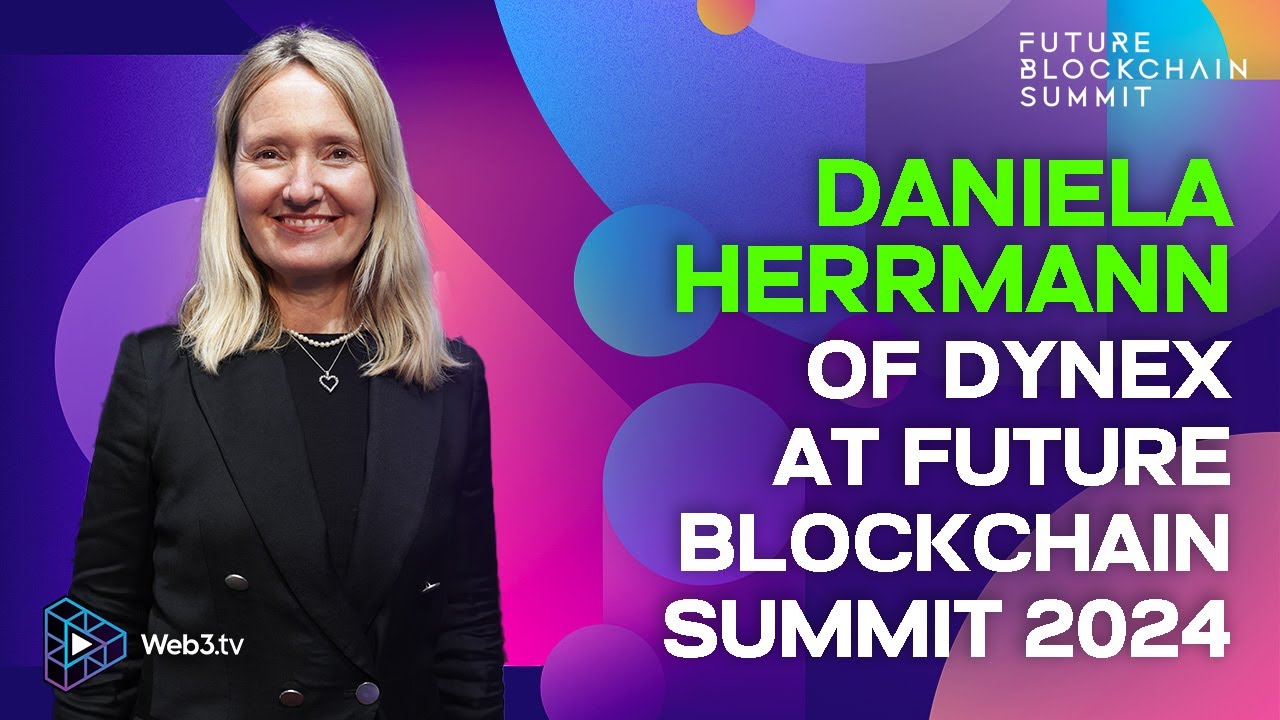Blockchain Expert Explains One Concept in 5 Levels of Difficulty | WIRED
Summary
TLDRIn this insightful discussion, Bettina Warburg explains the concept of blockchain technology across five levels of increasing complexity. She introduces blockchain as a decentralized way to facilitate peer-to-peer trade, reducing the need for intermediaries like banks or stores. As the conversation progresses, she explores its use beyond cryptocurrencies like Bitcoin, emphasizing its potential for revolutionizing industries like energy, pharmaceuticals, and supply chains. Warburg delves into the security, scalability, and flexibility challenges of blockchain, highlighting the need for education, trust-building, and real-world applications to make the technology mainstream and accessible.
Takeaways
- 😀 Blockchain is a decentralized technology that allows peer-to-peer transactions without the need for intermediaries like banks or companies.
- 😀 Blockchain technology works by utilizing a network of computers that hold the same transaction history, ensuring transparency and security.
- 😀 Blockchain is often associated with cryptocurrencies like Bitcoin, but its potential applications extend far beyond currency, including in sectors like energy, pharmaceuticals, and retail.
- 😀 One of blockchain's key features is the use of cryptography to secure transactions, ensuring that data is encrypted and tamper-proof.
- 😀 Blockchain operates on a distributed ledger where all participants have access to the same data, making it almost impossible to alter historical records.
- 😀 Instead of relying on a central authority (like a bank), blockchain guarantees trust through technology, allowing direct transactions between parties.
- 😀 The technology behind blockchain, such as consensus mechanisms, helps ensure that no single entity can control the network or alter the ledger.
- 😀 In addition to trading goods and services, blockchain can be used to verify identities, such as government-issued passports or university enrollments.
- 😀 Blockchain has the potential to disrupt traditional institutions, such as banks, by removing intermediaries and enabling secure, direct transactions.
- 😀 Despite its promise, blockchain faces challenges like security concerns, education gaps, and scalability issues, which need to be addressed before widespread adoption.
- 😀 Blockchain's real-world applications are evolving, with various projects underway in areas like smart grids, supply chains, and even autonomous vehicles.
- 😀 While there is excitement around blockchain, some of the hype, particularly around initial coin offerings (ICOs), may not be grounded in practical reality, and the focus should shift to its practical, real-world use.
Q & A
What is blockchain technology?
-Blockchain technology is a decentralized network that allows for peer-to-peer transactions without intermediaries like banks or companies. It uses cryptography to secure transactions and creates a public, transparent ledger of all transactions.
How does blockchain work in terms of transactions?
-Blockchain works by storing transaction data across a network of computers, where each participant has an identical copy of the transaction history. This decentralized system ensures the integrity of the data and prevents anyone from altering past transactions.
Why is blockchain described as decentralized?
-Blockchain is decentralized because no single entity controls the network. Instead, the system is maintained by a distributed network of computers, each of which stores and verifies the transaction data.
How does blockchain eliminate the need for middlemen like banks or companies?
-Blockchain uses technology to replace middlemen by validating transactions using cryptography and a consensus mechanism. This means that people can directly exchange value with each other without needing a third party to facilitate or verify the trade.
What is the role of cryptography in blockchain technology?
-Cryptography in blockchain is used to secure the data, ensuring that transactions are not tampered with. It helps encode transaction information so that it remains private, while still allowing validation of the transaction's occurrence.
How does blockchain ensure the security of transactions?
-Blockchain ensures security through a consensus mechanism among network participants and the use of cryptographic hashing, which makes it difficult to alter any transaction data once it's been recorded.
Can blockchain technology be applied outside of cryptocurrency?
-Yes, blockchain has many applications beyond cryptocurrency. It can be used in supply chains, identity verification, healthcare, energy distribution, and many other industries that require secure, decentralized record-keeping.
What is an initial coin offering (ICO), and how is it related to blockchain?
-An ICO is a fundraising mechanism where new blockchain-based tokens are sold to investors. It is often linked to blockchain's cryptocurrency side, though the hype around ICOs has led to many scams and overhyped expectations.
What challenges does blockchain face in terms of adoption?
-Blockchain faces challenges including security concerns, scalability issues, regulatory hurdles, and the need for better education and user experience design to make it accessible to a broader audience.
How might blockchain impact industries like energy or supply chain management?
-Blockchain can revolutionize industries like energy by enabling decentralized smart grids that autonomously distribute energy. In supply chains, it can offer transparent, secure, and tamper-proof records of goods' journey from producer to consumer.
Outlines

This section is available to paid users only. Please upgrade to access this part.
Upgrade NowMindmap

This section is available to paid users only. Please upgrade to access this part.
Upgrade NowKeywords

This section is available to paid users only. Please upgrade to access this part.
Upgrade NowHighlights

This section is available to paid users only. Please upgrade to access this part.
Upgrade NowTranscripts

This section is available to paid users only. Please upgrade to access this part.
Upgrade NowBrowse More Related Video

How the blockchain will radically transform the economy | Bettina Warburg

Blockchain: Decentralization is Central | Stuart Haber | TEDxBeaconStreet

Daniela Herrmann, Co-Founder of DYNEX at Future Blockchain Summit 2024

What are Oracles in Crypto? (Animated)

Apa Itu Blockchain, Cara Kerja dan Contoh Visualnya

E-Auto: So funktioniert bidirektionales Laden! | Unter Strom – Einfach Elektromobilität | 36 | ADAC
5.0 / 5 (0 votes)